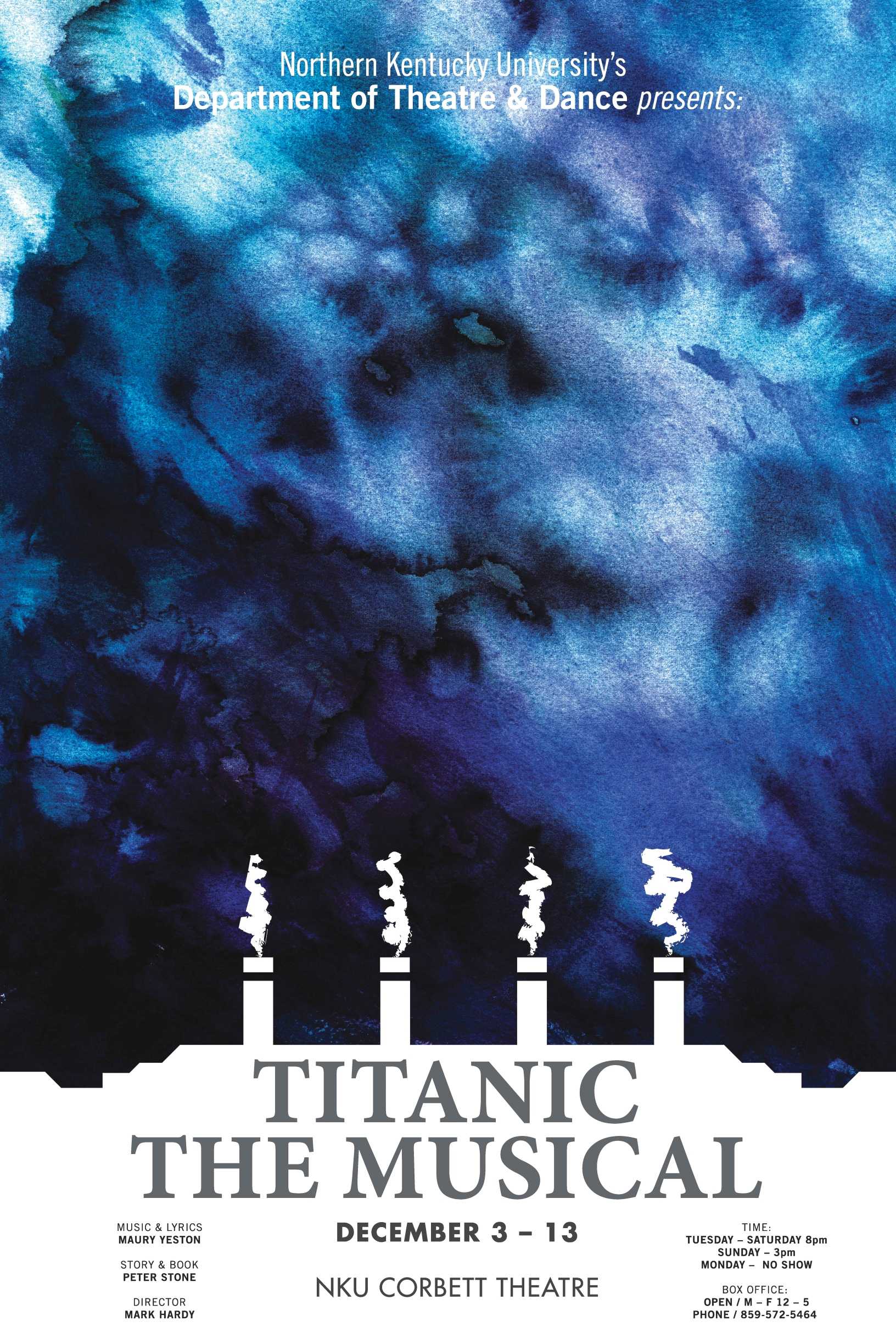 Courtsey of NKU Theatre Department.
Courtsey of NKU Theatre Department.From the outset, we know that she is perpetually doomed. No matter which way you spin it, the colossal ship that underwent its maiden voyage in 1912 is going to sink in the second act. Therein lies the challenge for Northern Kentucky University’s theatrical performance of the events surrounding the ill-fated Titanic. With precision, the musical production must somehow, and in someway, hoodwink the audience into forgetting the facts of history – that the sinking of the boat is not the entire story, but much more lies within the unfortunate souls that filled its hulls; not so much within the fate of the ship.
Within the two-hour production, the audience is immediately reassigned to another era, one in which the Industrial Revolution catapulted technology to its eminent heights – producing advances that allowed the 883-foot vessel, with the capacity to carry some 3,500 passengers, the ability to successfully set sail; however, alongside the advances in technology came the scourge of opportunistic wealth, industry barons, massive gulfs in class distinction and of the mounting frustrations that followed the classes aboard the Titanic.
During the opening scene, the passengers board the ship, carrying their luggage and the burden of their various backgrounds. Soon after, the curtain drops, the lights dim and the audience is seamlessly whisked away with the boat; meandering from Great Britain, due west, (overly) eager to arrive in America – land of new beginnings and opportunity. Unbeknownst to them, for’ the next couple hours, the passengers aboard take audience members for a hell of a ride.
For director Mark Hardy, the inherent class divisions of the boat seem to be a focal point throughout the production. What may seem like a precarious subject, a true juggling act of political correctness turns out to be well within the wheelhouse of Hardy’s directing and the execution of the storyline for the 37 cast members and their tremendous, often collective, voices.
With thunderous clamor, the cast of the musical brings down the house, leaving each scene with a crescendo of song and music, each converging for our senses.’ The lower decks of the ship -‘ the third-class quarters, mostly populated by immigrants – delivers songs of hardship and grief, while the upper decks croon about money and their elevated status. The cast is adept at evoking true emotion for the controversial estimation of those 1,523 lost and their inalterable wade into the frigid Atlantic.
In the final scene, as the ship resigns to its fate, the very wealthy seek to fill the majority of the lifeboats, leaving the indigent to icy deaths. With such overt pursuance of inequality, accompanied by frustration among the ship’s manifest, one shouldn’t question why the great Titanic was lost to the sea, but one should consider those thankless workers who died by feeding her boilers for three hours to keep her afloat.
There were many standouts among Titanic’s performers, but a great deal of credit goes to the orchestra who worked in tandem with singers to present a immense wall of audio that successfully induced a standing ovation when the final curtain dropped.

